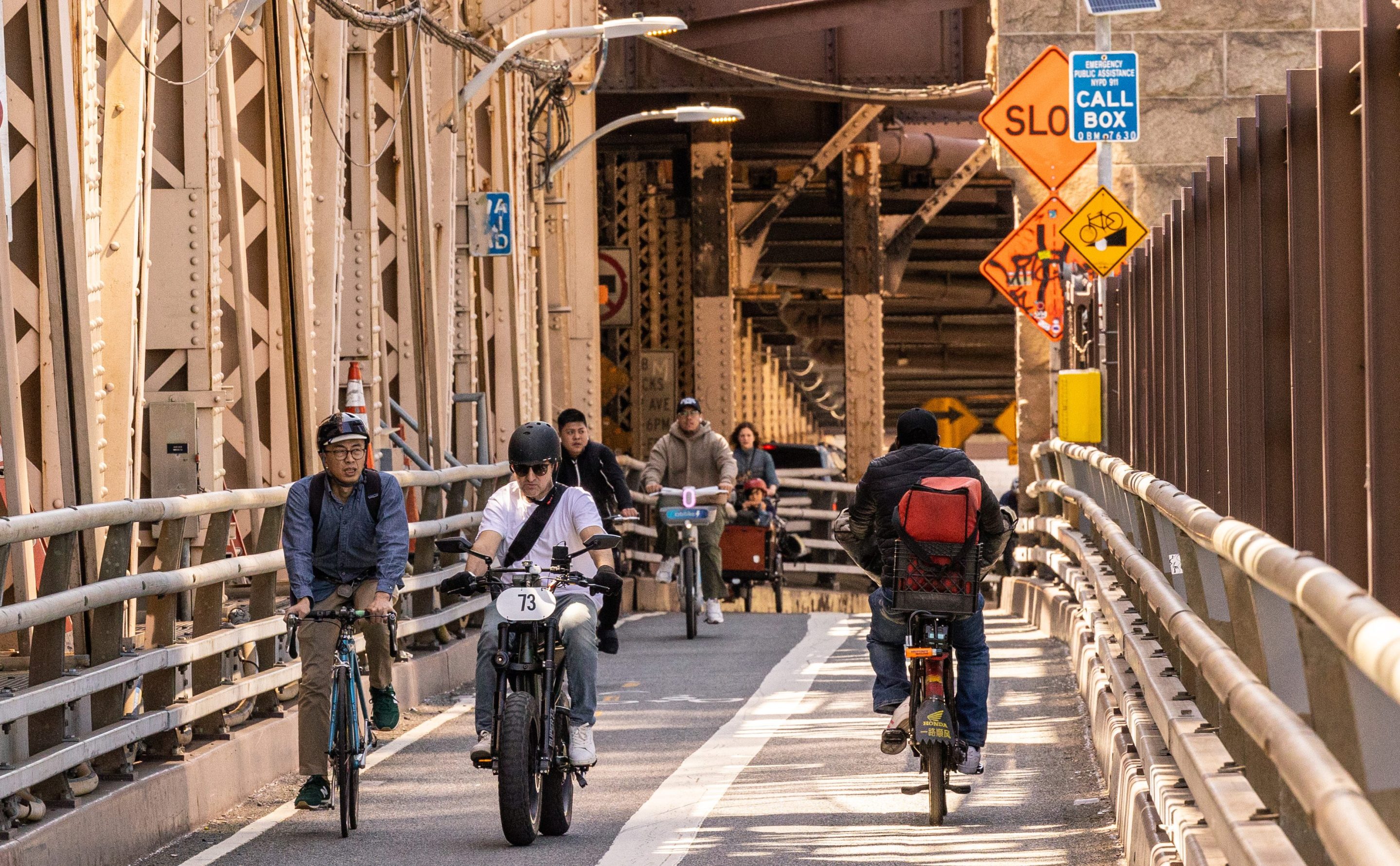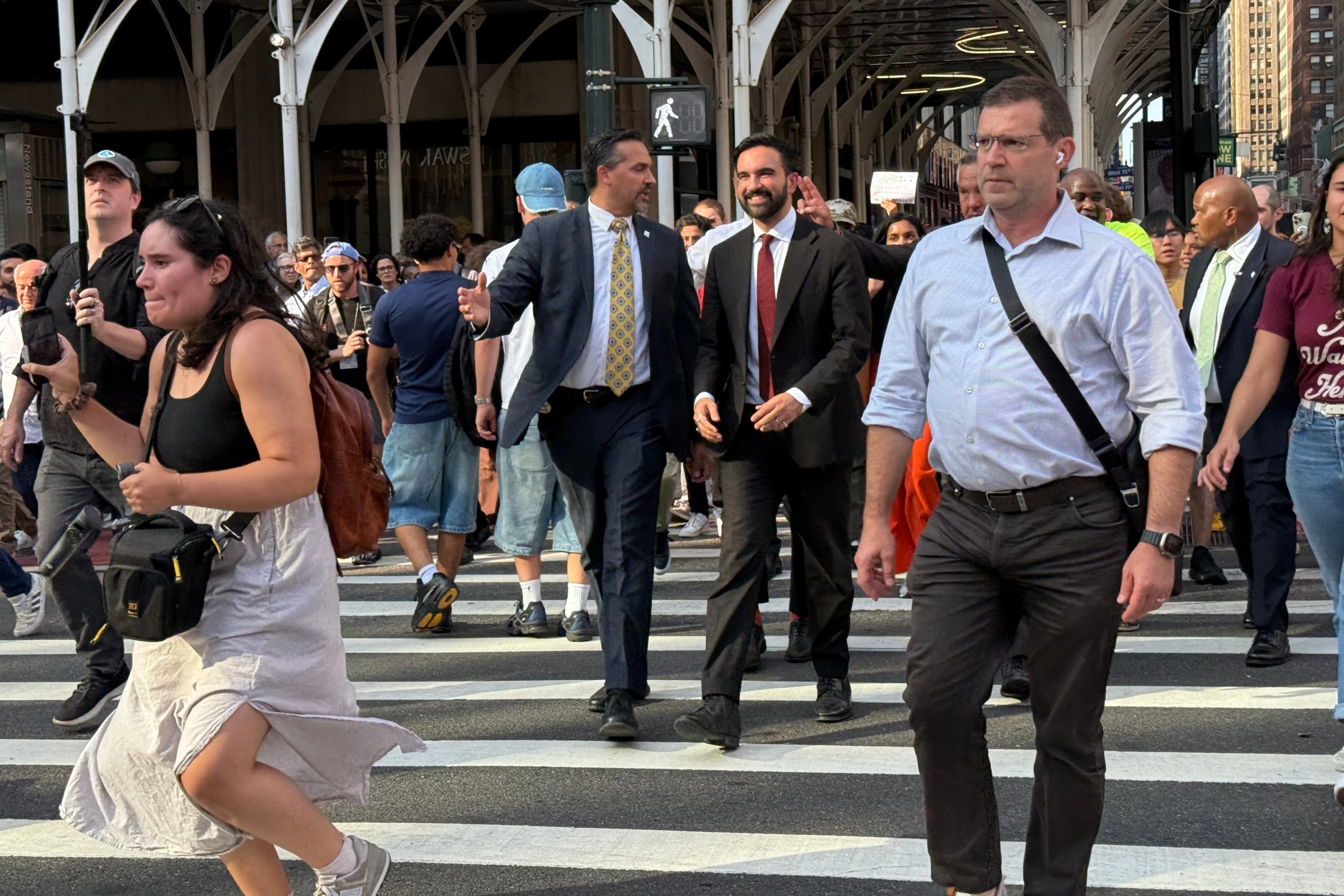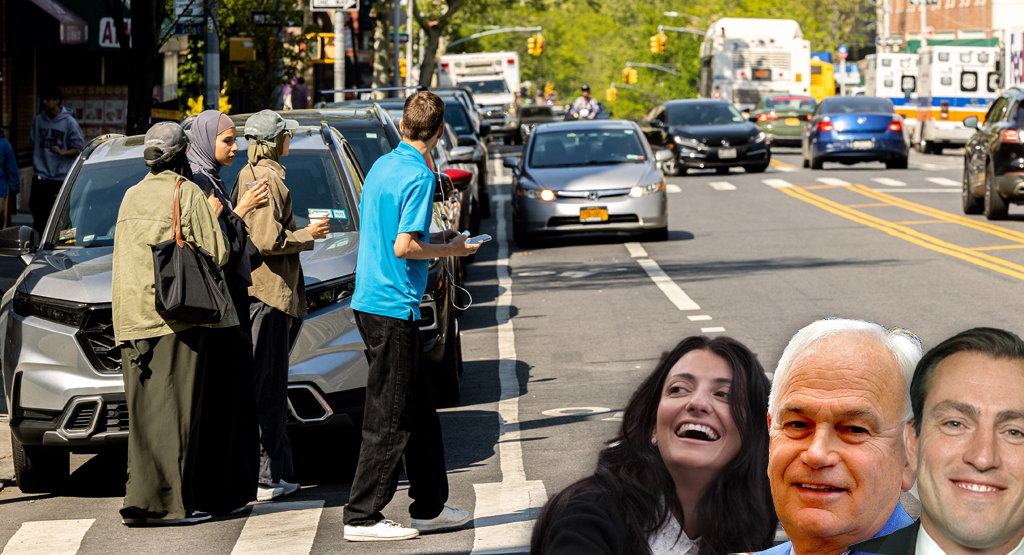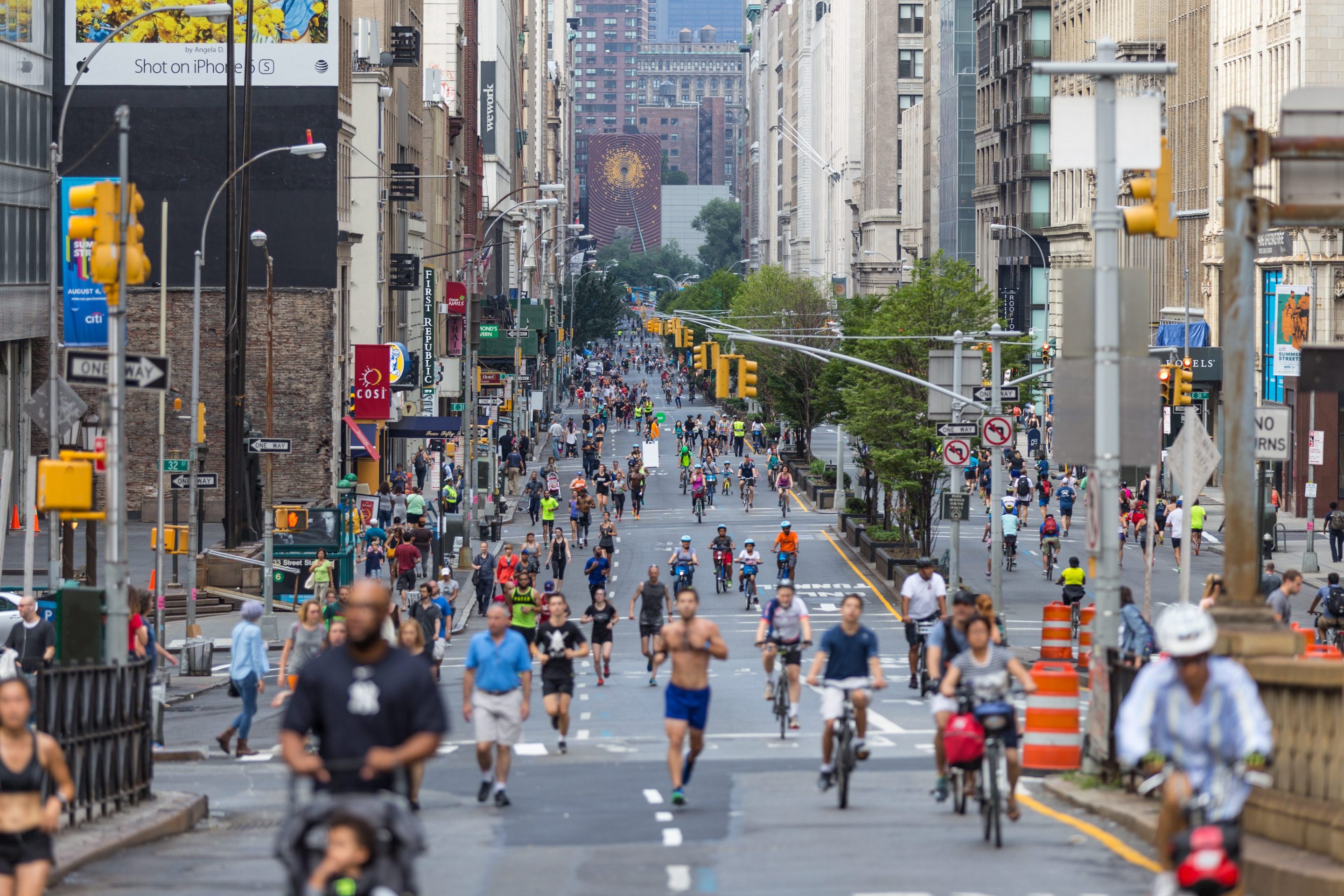Mayor Adams's push to reduce e-bike speed limits to 15 miles per hour will prompt more unequal and haphazard enforcement by the police, and the move is legally questionable, advocates said.
The incoming policy change — announced on Wednesday as part of the mayor's effort to combat what he calls the number one complaint of city residents — could be in effect as soon as the end of July. It follows the NYPD's month-old criminal court summons spree, which has expanded enforcement way beyond e-bikes and the six serious moving violations identified by the cops, as Streetsblog has documented.
Experts don't think the 15-mile-per-hour cap is a serious commitment to real safety.
"This is like the flail of the day from our disgraced mayor," said Steve Vaccaro, a lawyer for the firm Vaccaro Law which specializes in cyclist advocacy. "The police would be, at a minimum, confused and ignorant about what’s a motorized bike and what’s not. And at their worst would just not care and would just hand out tickets to anything that has two wheels.
"That’s my number one concern, because they’re already doing it," he added.
There are plenty of examples of the NYPD doing a ham-fisted job and casting a wide dragnet. The latest example: the ongoing policy by Commissioner Jessica Tisch of upgrading cyclists's traffic tickets to criminal court appearances.
Mayor Adams originally announced the change would come about via the city's rulemaking process, but lawyers told Streetsblog he would need the City Council to actually legislate the change.
Late on Thursday night, Manhattan Council Member and candidate for borough president Keith Powers gave the mayor that opportunity, announcing legislation to enact the change, in order to address what the pol called the "chaos" on the streets.
"Biking is a crucial tool to tackle the climate crisis and help New Yorkers get around the city, but we also must address the well-documented concerns about safety," Powers said in a statement. "Many New Yorkers are concerned about the reckless behavior we’ve seen from e-bike operators that haven’t been properly regulated, and it’s time to ensure that e-bikes can’t speed down the street, causing chaos."
Powers said in a press release that he had been "hearing from constituents for years about the issue of e-bikes," and began pushing for slower speed limits earlier this year, adding that he planned to propose a maximum $50 penalty for breaking the lower limit. A spokesperson, Emma Johnson, denied that the pol was coordinating with the mayor, saying Hizzoner's announcement "was a surprise to us."
"The Council Member feels strongly that a big policy change like this shouldn't be made without involvement from the Council (regardless of if he has the legal authority to do so, which is not clear)," Johnson wrote in an email.
The lawmaker did not provide any data to back up his claim of "chaos" caused by e-bikes – which accounted for less than half a percent of the nearly 10,000 traffic injuries in 2024 (take a wild guess which mode of transportation accounted for the remaining 99 percent).
Powers plans to introduce the bill on Wednesday, but his office provided Streetsblog with an early copy the proposal [PDF].
Rhetoric versus reality
Under the NYPD's new enforcement strategy, officers are supposedly focused on e-bikes and six traffic offenses, such as going through a red light and riding on the sidewalk, police brass have claimed.
But in reality, Streetsblog found cases of cops doling out summonses to cyclists for riding with an advance walk signal, which has been legal for six years, giving out tickets for riding with two headphones in, and riders have accused officers of entrapping them by jumping into their path and them slapping them with failure to yield charges.
Cops have in the past tried to unilaterally declare a 15 mph speed limit for bikes inside Central Park during the Bloomberg administration. But officers from the park's dedicated precinct – in a rare move – soon rescinded their tickets and apologized to cyclists.
"They just went out there with a speed gun and they started writing up tickets for pedal cyclists going over 15 miles per hour in the park," the attorney said. "It was just a disaster, and all the tickets ended up being rescinded."
Officers often also gave out bogus fines because they relied on "cheat sheets" the NYPD circulated during previous bike crackdowns, which included offenses that didn't even apply in New York City.
New York's alleged Finest have a history stretching back well before that of disproportionately ticketing Black and brown cyclists for infractions like riding on the sidewalk.
More than nine-in-10 summonses for reckless bike operation and 95 percent of summonses for riding a bike on the sidewalk went to New Yorkers of color in 2024, according to data crunched by Transportation Alternatives.
The new policy would now muzzle e-bikes with the threat of criminal court while letting drivers of multi-ton cars – who account for nearly all traffic deaths and injuries – blow the speed limit and just pay a ticket online, TA's Executive Director Ben Furnas said.
"A 15-mph speed limit on e-bikes and no other vehicles is half-baked and ill-conceived," Furnas said in a statement. "This is a bizarre escalation of the administration’s misguided war on biking."
How will the law work?
The Adams administration claimed it can singlehandedly reduce the speed limit for e-bikes, but lawyers said Hizzoner needs the buy-in from the Council.
City Hall spokesperson Allison Maser pointed to the City Charter which says the Department of Transportation commissioner can "except as otherwise provided by law" make "rules and regulations for the conduct of vehicular and pedestrian traffic in the streets."
That includes speed limits, according to Maser. The state law that legalized e-bikes created limits for the bikes' maximum speeds — Citi Bikes and Class 2 throttle bikes at 20 miles per hour, and the Class 3 throttle bikes prefered by delivery workers at 25 miles per hour — but Maser said the city can restrict them to 15 miles per hour, the spokesperson added.
However, one attorney pointed to the "except as otherwise provided by law" section, arguing that the state legislation that legalized e-bikes five years ago requires changes to go through the Council, not simply the city rule-making process.
"The governing body of any city, town or village may, by local law or ordinance, further regulate ... the operation of bicycles with electric assist including, but not limited to, maximum speed," (emphases added)," the law states.
The requirement for a "local law" means that Mayor Adams can't do this by fiat, said Brandon Chamberlin, an attorney with the street safety-focused firm Adam White Law.
"Albany legalized e-bikes, they’re a creature of state law," he said. "Eric Adams, as little as he likes it, is bound by state law."
Maser retorted that DOT regulations [PDF] from last year governing e-cargo bikes limits them to 15 miles per hour. But Chamberlin re-retorted that the agency specifically created a new category of bike called "commercial bicycle," rather than alter state law.
"They crafted the e-cargo bike regulations to not apply to anything that is an e-bike under state law, because DOT cannot by itself regulate e-bikes under state law," Chamberlin said.
That debate could soon be moot, if the Council passes the incoming legislation by Powers, however, Council Speaker and mayoral candidate Adrienne Adams did not respond to a request for comment by press time.
Update (Friday, June 6, 2025, at 10:00 a.m.): This story has been updated with additional information and comment from Council Member Keith Powers's office received after initial publication.






